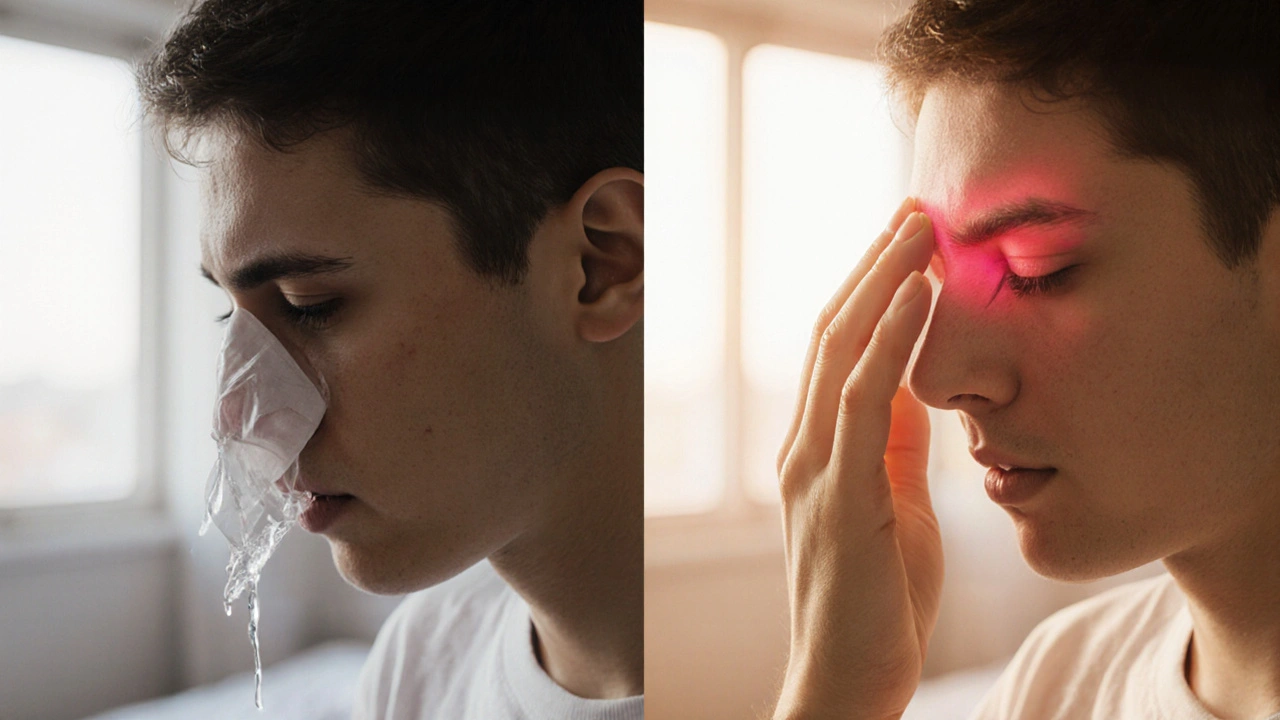Runny Nose: Causes, Relief and What to Watch For
When dealing with runny nose, the excess flow of thin, watery mucus from the nostrils, often called nasal discharge. Also known as nasal drip, it can be a signal that something in your upper airway is irritated or reacting. Allergic rhinitis, an inflammation of the nasal lining caused by allergens such as pollen, dust or pet dander is one of the most common culprits, especially when the discharge is clear and paired with itchy eyes. Antihistamines, medications that block histamine receptors to reduce allergy symptoms often calm the sneeze‑fit and dry up the mucus, making the day feel more manageable. A runny nose also pops up with viral infections like the common cold, where the body sends extra fluid to flush out germs. In that case, the discharge may turn thicker and change color as immune cells join the fight. The key is to spot the pattern: if the drip spikes after a walk in the park, think allergies; if it follows a sore throat or fever, think a cold. Understanding this link helps you choose the right relief strategy without guessing.
How to Manage a Runny Nose Effectively
Decongestants, drugs that shrink swollen nasal blood vessels to cut down swelling and mucus flow are handy when congestion builds up and breathing feels blocked. They can be taken as pills, nasal sprays, or lozenges, but short‑term use is best to avoid rebound effects. Pairing a decongestant with an antihistamine gives a one‑two punch for mixed allergy‑cold symptoms. Hydration also matters; drinking water thins the mucus, making it easier for the body to clear. Simple home remedies—like a saline rinse or a steam inhalation—can flush irritants and soothe the lining without side effects. If your runny nose lasts more than ten days, gets unusually thick, or comes with facial pain, it might signal a sinus infection, and a doctor’s advice is wise. Recognizing when the drip is a harmless signal versus a sign of something deeper saves you time and keeps you feeling better faster.
Below you’ll find a curated list of articles that dive deeper into each of these topics, from choosing the right antihistamine to spotting a sinus infection early. Whether you’re battling seasonal allergies, a stubborn cold, or just want quick relief tips, the collection offers practical, easy‑to‑follow guidance tailored to real‑world needs.

Runny Nose vs Sinus Headache: Key Differences Explained
Learn how to differentiate a runny nose from a sinus headache, spot key symptoms, find effective home remedies, and know when to seek medical help.
read more




